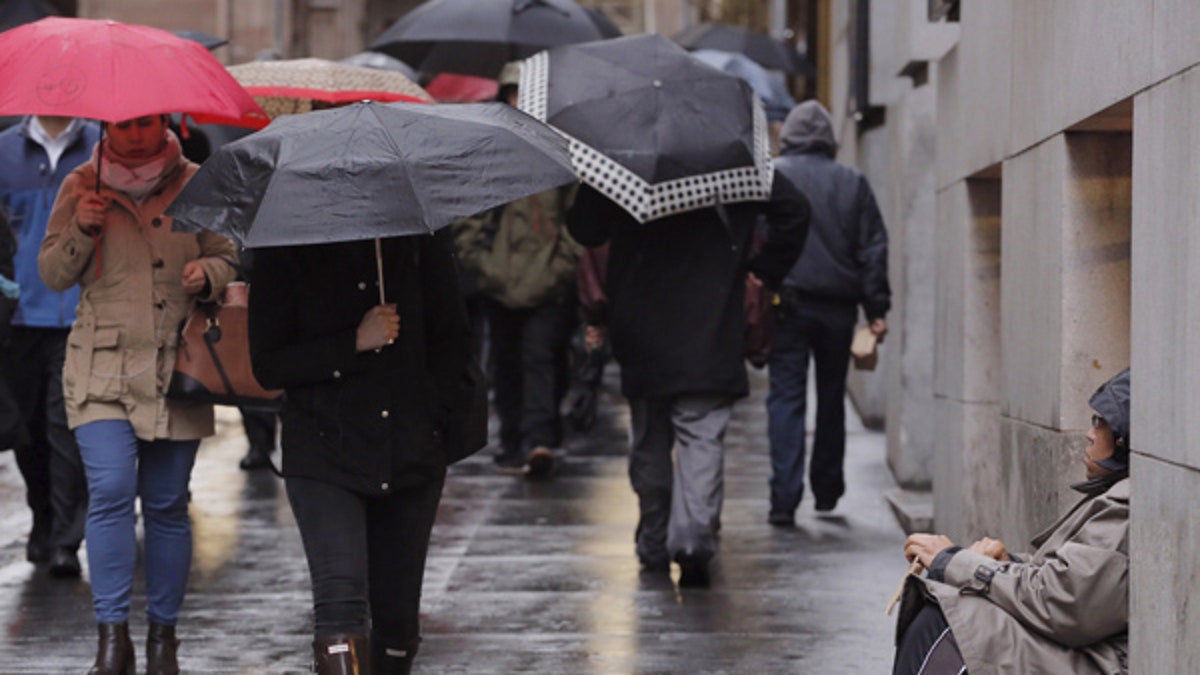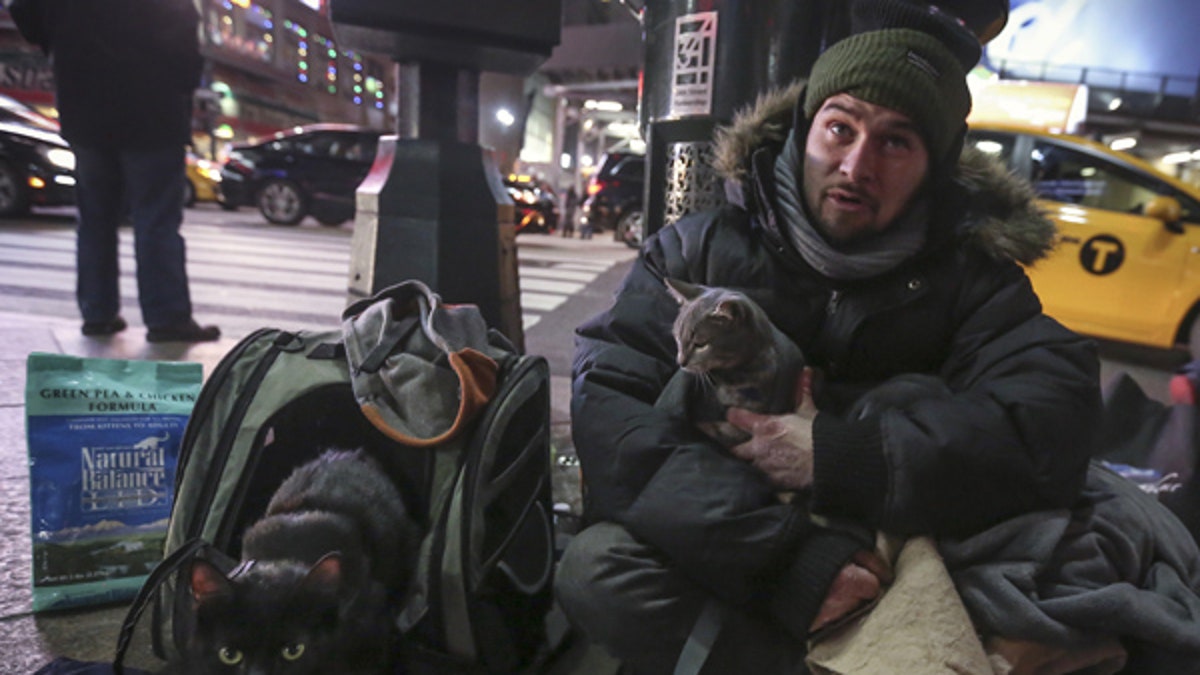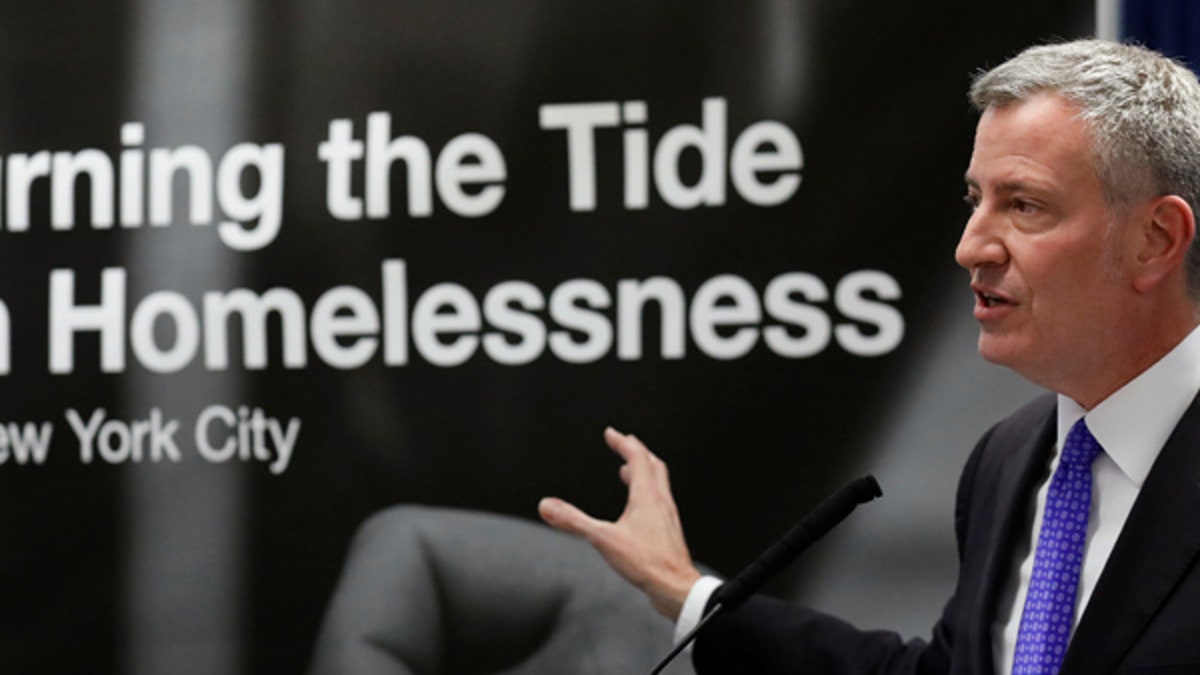
A homeless person is seen on the street in New York City (Reuters)
NEW YORK – New York City would increase its number of homeless shelters but seek to stop putting up homeless people in hotels and private apartments under a plan unveiled Tuesday by the mayor.
Mayor Bill de Blasio's latest effort to deal with a stubborn surge in homelessness would open about 90 new shelters citywide in five years and expand 30 others. There are currently nearly 300.
Meanwhile, the city would end its use of hotel rooms to shelter the homeless by 2023 and its similar use of private apartments, some of which have been slammed for poor conditions, by 2021. The apartment deadline was pushed back from an earlier date of 2018 after officials concluded it would only end up boosting the pricey use of hotels.
Even if everything in the plan comes to pass, the city projects the homeless shelter population would drop by only 2,500 people by 2021 — a fraction of the roughly 60,000 homeless people who now spend their nights in shelter in the city, with thousands more on the streets.
HAWAII CONSIDERS LETTING HOMELESS CAMP IN DESIGNATED 'SAFE ZONES'

Keith Rosario sits with his cats outside Pennsylvania Station in New York City. (Reuters)
"Is it everything we want it to be? No. It's an honest goal," said de Blasio, who emphasized that his plan would aim to keep people as close as possible to the neighborhoods they called home.
It's not immediately clear where the city would seek to put 90 new shelters. They've encountered neighborhood resistance in the past. It's also not immediately clear how the proposal might affect the city's $1.3 billion budget for services for the homeless.
The shelter population has jumped by about 70 percent in a decade in New York City, which is required by decades-old legal agreements to provide shelter to everyone seeking it.
While the federal government said in 2015 that homelessness had declined on a national level in the previous five years, it has increased in recent years in some places, for reasons likely including rents rising ahead of incomes. Los Angeles and Hawaii recently declared homelessness a state of emergency in 2015.

New York City Mayor Bill de Blasio discusses the city's homeless population on Feb. 28, 2017. (Reuters)
HOMELESS VETERAN BACK ON HIS FEET THANKS TO HELP FROM A STRANGER
In 2013, the nightly number of people in shelter in New York topped 50,000 for the first time since record-keeping began in the 1980s, though then-Mayor Michael Bloomberg had promised to reduce homelessness by two-thirds.
But the number has risen over 10 percent since de Blasio took office in 2014, and it's been particularly thorny for a mayor whose campaign emphasized affordable housing and reducing income inequality.
Administration officials have said the number of homeless would be higher without various initiatives they've launched or furthered, including rental assistance, legal aid for tenants fighting eviction and a program called HomeStat, which tasks workers with making repeated daily contact with the homeless. Some 690 people have come into shelter and stayed off the street in a year, de Blasio said.




















